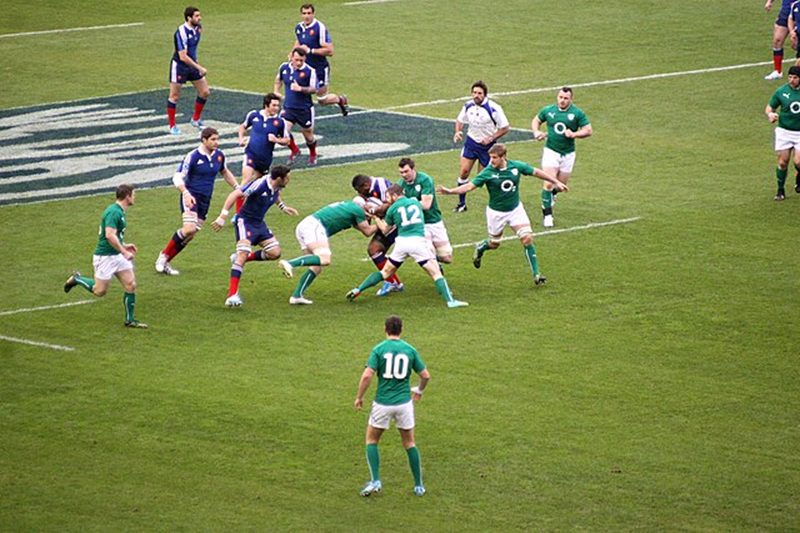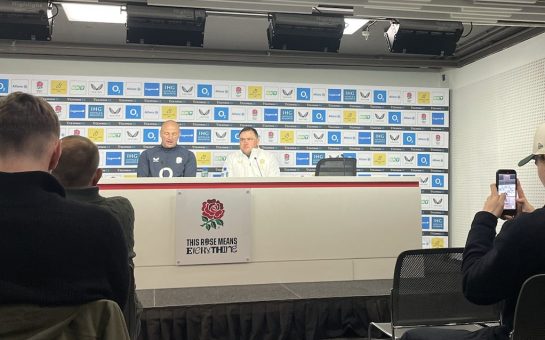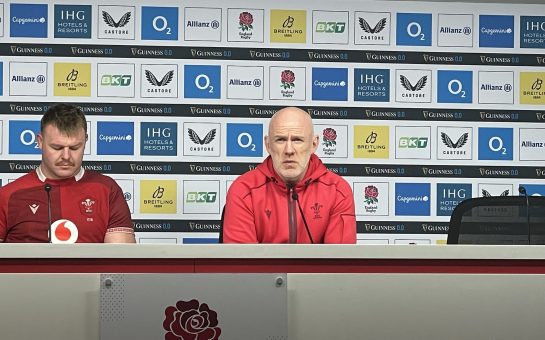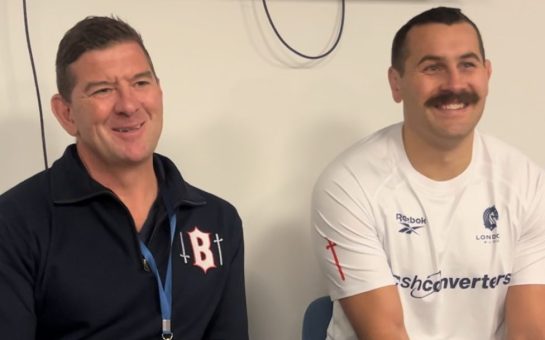It was only four months ago that members of the French rugby team collapsed to the turf of the Stade de France, pushed to the outermost edges of their physical and mental limits.
They had just fallen to South Africa in one of the all-time great rugby matches, ending their pursuit of Word Cup victory on home soil.
Though the manner of their defeat – by a single point to the eventual champions – was agonising, there were no doubts in the aftermath that France were truly one of world rugby’s elites.
Fast-forward to the present day, and that assessment rests on far less solid ground.
It’s not just the fact that France have watched their Six Nations push falter before it ever really began that is so disheartening for fans of Les Bleus.
It’s that on the basis of their play, they could easily be seen as fortunate to achieve the meagre results they have.
A 17-38 demolition at the hands of Ireland in Marseille, a controversial 20-16 win over Scotland at Murrayfield and a 13-13 draw with Italy in Lille that would have been a loss if not for a last-second penalty miss.
None of that reads anything like the team that many thought should have won the Rugby World Cup, that ran the victors to the wire in the quarters and soundly beat losing finalists New Zealand in the pool stage.
So what has gone wrong for France at the Six Nations?

Battered and Bleu
Much has been made already of how little this French side resembles the squad from the World Cup, although this perhaps should have been less of a surprise than it is.
The stark truth is that this team doesn’t look like the one from last October because it simply isn’t the same team any more.
The Gallic rooster that adorns the French shirt had its wings severely clipped before the Six Nations began by a series of injuries to key players and the ranks of the French casualty list have only swelled in the tournament’s first three rounds.
At various points, Dylan Cretin, Thibaud Flament, Anthony Jelonch, Romain Ntamack, Silipi Faletea, Mathieu Jalibert and captain Gregory Aldritt have been rendered unavailable for Fabian Galthie to call upon.
These aren’t knocks to rotational squad players either, with many of those injuries striking off otherwise nailed-on starters who are amongst the best in the world at their position.
The ACL injury to back-row Jelonch that ruled him out before the tournament is particularly cruel given he was forced to exit last year’s Six Nations with a similar affliction.
Meanwhile, a knee injury to star fly-half Jalibert against Italy has left France severely lacking in experience at the position, since Ntamack is still yet to return from an ACL rupture of his own.
In this light, it is much less shocking that France’s on-pitch performances have suffered, given how few of their best players are actually lining up.
Seeing Rouge
If the injuries plaguing them created an uphill battle for Les Bleus, their own poor discipline has turned it into a mountain.
In two of their three matches, France have been forced to play over half the game at a man-disadvantage thanks to poor tackling technique from players who should really know better.
Against Ireland, a pair of yellow cards for Paul Willemse saw France reduced to 14 for an hour of game time.
It is simply not feasible to expect any kind of respectable result against one of the three best teams in the world while under-strength for three-quarters of the game.
In fairness to Willemse, who has been capped 32 times for France, Ireland have been in such scintillating form in this tournament that his dismissal may not have altered the end-result but at the very least it might not have been quite such a shellacking.
Far more worthy of disapprobation is the head-on-head collision instigated by Jonathan Danty against Italy, which very much did materially alter the result and handed Italy a lifeline in a game that France had been thoroughly dominating.
At his best, Danty is truly electric, one of the very best inside centres on the planet, but his recklessness is starting to overshadow his talent, as he has received two yellow and two red cards since December.
Had Paolo Garbisi’s penalty not cannoned off the post in the dying seconds of the game and France avoided one of the biggest Six Nations upsets ever, Danty’s shame would only have been multiplied.

Waving the Blanc Flag
Being unable to keep 15 men on the field and a rampant injury crisis certainly go some way to explaining France’s lacklustre performance at the Six Nations.
Yet, even after accounting for personnel, there remains an aura of malaise about this French side – they just haven’t looked very good.
Often, in the context of team sports it is asked just how influential a single player can truly be in a game with so many moving parts. How big an impact can one man have among 30?
It turns out that if that man’s name is Antoine Dupont, that impact is very big indeed.
Of course, no one will be surprised to find out that losing the best player in the world to his dream of bringing France Olympic gold in Rugby Sevens has made the team worse.
What might be surprising however, is just how much worse France have become and how much their entire identity as a team rested on the singular talents of Dupont.
As Rugby Pass has pointed out, this era of French rugby has been defined by their remarkably low possession numbers, typically hovering at around 45% – a function of how much they kick the ball away.
The French game plan has always been to engage in long kicking battles and use the distortions in defensive shape they create to open up opportunities for their lethal kick returners.
The likes of Thomas Ramos and Damian Penaud are exceptional in these kinds of ‘unstructured’ plays, but it is the creativity, decision-making and passing wizardry of Dupont that turns holes in the defence into tries.
In 2023, France scored 12 of their 21 tries off of turnovers and kick returns, or 57%. A year later and minus Dupont, they have only scored one of their five tries (20%) in this manner.
France were scoring at a rate of 2.4 tries a game just from out-of-structure situations, and over four all-situation tries overall. Now, they can muster just 1.25 tries from any source per match.
Players like Penaud are excellent at ending plays by crossing the try-line, but without the cerebral brilliance of Dupont, France lack efficient ways of getting the ball into their hands.
Les Bleus will be reunited with their talisman after the Olympics in Paris this summer, but that won’t be of much use to them in the final three rounds of this year’s Six Nations.
It can’t get worse, can it?
After a rest week, France will play a floundering and inexperienced Wales side who have lost all three of their games so far.
It is a game that they should win – comfortably – and presents a fine chance to steady what has become a rapidly listing ship.
Yet this is a team that was supposed to contend with Ireland for the whole thing this year. This is a team that was supposed to be one of the best in the world. This is a team that was definitely supposed to beat Italy.
And we know how that turned out…
Feature image courtesy of Cangadoba under Creative Commons Attribution-ShareAlike 3.0





